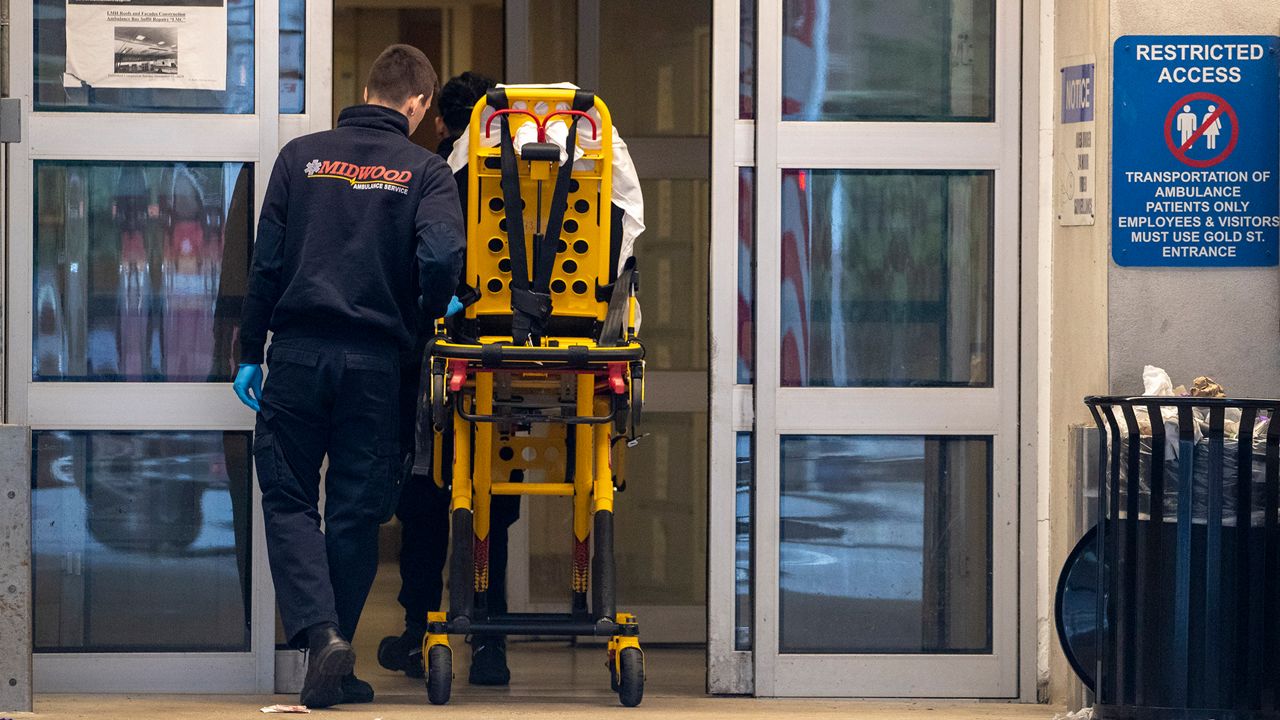It was an unsettling moment: a husband and wife doing a series of taste tests. They don’t want their real names used, so we'll call them Steven and Rachel.
Steven places coffee grinds on his wife's tongue. Strangely, she doesn't taste it.
Next comes chili powder. Nope, she doesn't taste that either. How peculiar.
Rachel has anosmia and ageusia, the loss of sense of smell and taste, respectively. It's a not-so-discussed symptom of coronavirus, which she tested positive for last week.
“The first time I really noticed something was weird, I was brushing my teeth and the toothpaste tasted way different, but I didn’t think anything of it. Then, [Steven] was reading about how this could happen online and handed me a candle and said, 'Can you smell this?' and I said I couldn't smell it at all," Rachel said.
The two 30-year-old Hell's Kitchen residents are both home sick, and both also happen to be medical professionals - Rachel a physician assistant and Steven a physician in training, each at Manhattan hospitals.
Both were working a week ago as more and more patients began being admitted to the hospital with symptoms of the coronavirus. Steven, who was working in an intensive care unit, said he thinks he was the one who gave it to his wife.
"Everything was business as usual in the ICU, and then [last Tuesday] I had a really bad sore throat and just felt kind of tired and weird," he explained. "I felt totally fine the next day, but then [Rachel] got a sore throat."
Rachel's sore throat didn't go away as quickly as Steven's. She also described feeling "weird," as well as chills and sweatiness, but not a fever. Nonetheless, she called her hospital and they gave her a test Thursday. Nine hours later, the positive results came back.
Steven decided to quarantine then as well. They said both of their employers are following the CDC guidelines for staff exposure.
Despite being trained medical professionals, the two said it was strange not knowing exactly what was going on, and are now warning their friends and families.
"Take it seriously," Steven said. "It's a very scary thing, and even though we're young, I knew bad things could still happen."
"I've been telling all my friends that it doesn't show up as cough, fever, shortness of breath for everyone. It can mimic a lot of things that we would just push aside," Rachel said. "My initial reaction was, I felt very guilty for potentially exposing my coworkers and other people to it."
To her credit though, Rachel did the right thing. She called out sick immediately after presenting symptoms, and took a test. Steven didn't take the test but quarantined himself immediately, sparing the use of a test potentially needed for patients.
Meanwhile, the quickly mounting number of infections has also caused a critical shortage of medical supplies in many city hospitals. Rachel and Steven said they believe hospitals are doing their best to make sure those dealing directly with positive patients are protected. However, they said it may just not be feasible at this time for every hospital worker to wear a mask.
Soon, Steven and Rachel plan to be back at work, back on the front lines. They said they are feeling as close to normal as possible - no more sore throat, no fever - but Rachel is still having trouble with her sense of taste and smell.
"If that's the worst thing that happens out of all this, then I’m happy," she said.



